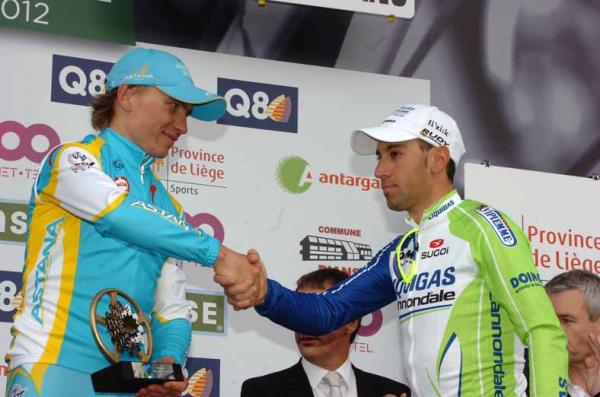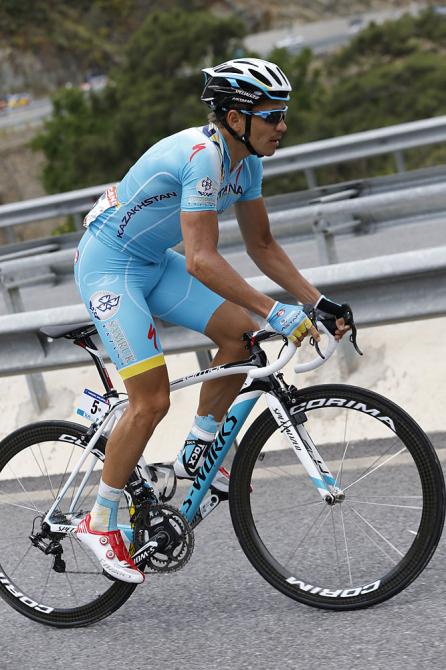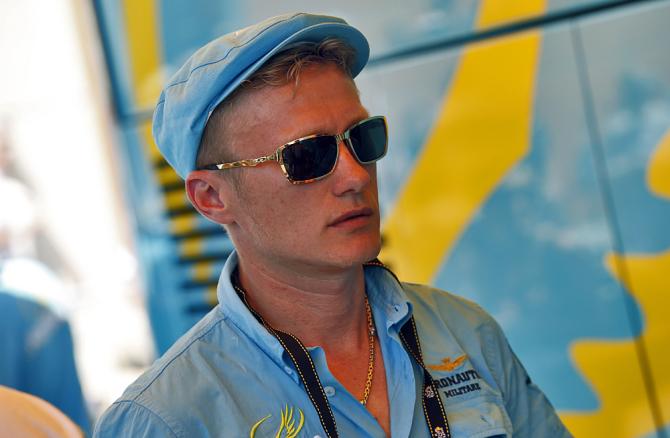Astana hold fire on self-suspension as Iglinskiy seeks B-sample analysis
MPCC rules do not apply until after counter-analysis



Despite a second positive test for EPO in the space of a month, Astana will not suspend itself from this weekend’s Tour of Lombardy and Tour of Almaty as Maxim Iglinskiy is understood to have requested the analysis of his B-sample.
Under the regulations of the Movement for Credible Cycling, member teams must withdraw from racing for eight days – starting from the next WorldTour event – when two of their riders return positive tests within a twelve-month period.
On Wednesday evening, it emerged that the 2012 Liège-Bastogne-Liège winner Maxim Iglinskiy had returned an adverse analytical finding for EPO on August 1 of this year. Last month, his brother Valentin was handed a four-year ban by the Kazakh Cycling federation after confessing to doping following a positive test for EPO during the Eneco Tour in August.
Unlike his younger brother, however, no immediate confession has been forthcoming from Maxim Iglinskiy, and a statement from his Astana team suggested that he will seek the analysis of his B-sample. “The rider is suspended provisionally and shall remain out of competition in anticipation of the results from the B analysis,” said Astana manager Alexandre Vinokourov.
Under existing MPCC regulations, therefore, Astana is not obliged to suspend itself from racing until the counter-analysis of Iglinskiy’s sample has been carried out. Given that the B-sample is highly unlikely to be analysed before the weekend, the decision has effectively bought Astana time and will allow it to field teams at the Tour of Lombardy and – more importantly, as far as its senior management is concerned – the Tour of Almaty on home roads in Kazakhstan, where Tour de France winner Vincenzo Nibali is scheduled to appear.
“Our regulations are clear: they say that the principle of auto-suspension is applied only after the counter-analysis of the B-sample,” MPCC president Roger Legeay told Cyclingnews on Thursday morning. “Alexandre Vinokourov called me last night and he told me then that he hadn’t talked to the rider yet, so I asked him to get the rider’s position.
“If the rider doesn’t want a counter-analysis then the team would auto-suspend itself. If he asks for the B-sample, however, we must wait for the result of the counter-analysis. That’s been the rule from the very start.”
The latest race content, interviews, features, reviews and expert buying guides, direct to your inbox!
Two MPCC member teams have previously suspended themselves racing under article 10 of the body’s regulations. Ag2r-La Mondiale missed the 2013 Critérium du Dauphiné after a B-sample analysis confirmed Sylvain Georges’ positive test for heptaminol (Steve Houanard had previously tested positive for EPO), while RusVelo missed last year’s Giro dell’Appennino after three of its riders tested positive for the asthma medication Fenoterol.
In the absence of a confession or B-sample confirmation of Maxim Iglinskiy’s positive, Fabio Aru will lead Astana at the Tour of Lombardy on Sunday, while Vincenzo Nibali and Alessandro Vanotti will travel to Kazakhstan as planned on Friday ahead of the Tour of Almaty.
Vinokourov and other members of Astana management were scheduled to travel to Kazakhstan on Thursday. The 2013 edition of the race, incidentally, was won by Maxim Iglinskiy.
It remains to be seen what action Astana will take should Iglinskiy’s B-sample confirm the positive test. Speaking at the world championships last week, UCI president Brian Cookson expressed the wish that the MPCC would align its rules with the WADA code, but Legeay told Cyclingnews that his movement’s regulations complement those of the UCI.
“I understand what Brian Cookson is saying and I have no problem with that, but the MPCC follows all the rules of the UCI and WADA, and also allows managers to make decisions that complement the UCI’s rules – such as the auto-suspension of teams or testing for cortisol,” Legeay said. “The MPCC exists so that managers can take measures that go further than the UCI’s, because they want to bring maximum credibility to the sport. The ideal would be if the MPCC’s rules of today were adopted by the UCI.”

Barry Ryan was Head of Features at Cyclingnews. He has covered professional cycling since 2010, reporting from the Tour de France, Giro d’Italia and events from Argentina to Japan. His writing has appeared in The Independent, Procycling and Cycling Plus. He is the author of The Ascent: Sean Kelly, Stephen Roche and the Rise of Irish Cycling’s Golden Generation, published by Gill Books.